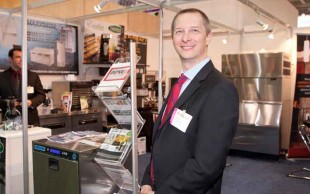

Suppliers reveal challenges of GCC markets

Hotel and restaurant suppliers have spoken out about the challenges they face when supplying to the GCC market.
While most suppliers say the UAE is the easiest market to export to, factors such as import duties, certifications, and inspections are a deterrent for supplying to other markets and sometimes to the UAE as well.
Griffith Laboratories head of sales – food service Middle East Inam Abul said: “As far as the UAE is concerned, the rules and regulations keep changing; there’s a whole lot of paperwork to be done. Halal certification is necessary so we have to make certain batches just for the GCC market.
While Halal products maintain the standard, and in the long term will definitely help us there are also instances where, for example... there was a halal certification requirement for fish feed and sometimes fishermen don’t have control and so we don’t know what they are feeding them,” he added.
TSSC business development manager Rashid B Bahar says priorities vary in different countries, which means that, while the UAE market values quality, others value lower prices.
“In Oman it’s completely different to the UAE, the reason being that there, they mostly look at prices. They are not really looking at brands, whereas in the UAE they look for quality. We've had more difficulties in Oman than here, because; in Oman they don’t even mention the brand – they are not allowed to write in the tender document which brand they want. It has to be vanilla specs, which means no brand mentioned, you just have to look for the performance,” he explained.
According to Greenfield World Trade vice president Jonathan Vadnos, new inspections and certification requirements have made it more difficult to supply to growing markets such as Saudi Arabia.
“One of the biggest challenges is duty structure; exporting to the UAE is a lot easier. Saudi is very difficult now because of their requirements for Saudi Arabia Standards Organisation (SASO). Every time you ship to Saudi Arabia you have to have an inspection; this costs money and time and manufacturers refuse to pay for it so it’s quite challenging now,” explained Vadnos.
Vadnos adds that although it makes sense to implement a standard for consumer products like hot water boilers, he doesn’t understand why the Saudi Arabia government has enforced particular inspections for commercial ice machines and dishwashers, which are already NSF and CE approved. “Passing Saudi standards has no bearing, and yet they are insisting, so shipping to Saudi quite challenging now,” he said.